FORT HOOD, Texas - The Army's highest ranking general took the opportunity July 24 to meet with Soldiers and senior leaders here.
During his visit to Fort Hood, Army Chief of Staff Gen. George W. Casey, Jr., whose wife accompanied him on the trip, toured the Warrior Transition Unit and met with Gold Star families and Soldiers from the 1st Cavalry Division.
While at the 1st Cavalry Division headquarters, Casey attended a briefing with the division's senior leaders and later took part in a press conference with local area media.
Some of the things Casey discussed with the reporters included issues with deployments, how they affect families and solutions to those issues.
Casey explained during the press conference that the Army is working to remedy the strains deployments are placing on Soldiers and their families.
Currently, deploying Soldiers spend about a year at home and then deploy for a year.
Casey said the Army hopes to see a change by 2011 whereby Soldiers spend two years at home for every year deployed-a goal which will be achieved by gradually increasing the Army in size by 75,000 Soldiers.
"We want Soldiers to be able to spend more time at home and rightfully so," Casey said.
Another one of the goals the Army will work toward is doubling the amount of money being spent on Army programs that help Soldiers and their families throughout the deployment process, said Casey.
Some of these programs include childcare and family readiness groups.
"Volunteers can sometimes get burned out...so we're going to put more money toward increasing childcare and put a huge effort into supporting the families," Casey said.
Along with this, more will be done to work towards helping Soldiers who suffer from post traumatic stress disorder.
"This is a combat wound and we need to treat it like one," said Casey.
"We really have to continue to work hard to reduce the stigma attached to this because all our studies tell us that the sooner you identify it, the sooner you get help, the faster you get better," he added.
One of the ways to better serve Soldiers who suffer from PTSD will include creating a more comprehensive mental health program.
"In the 1980s, the Army was having problems with physical fitness and we created a physical fitness program to fix that and we need to do something like that for our mental health (efforts)," Casey said.
Casey also commented on Warrior Transition Units, which are units that specialize in giving care to Soldiers who suffered wounds during the Global War on Terror. WTU's assist Soldiers in their transition from recovery either to going back to duty at their parent units or back into the civilian world.
"The WTUs have been a huge step forward for (Soldiers) in dealing with the challenges of recovery," said Casey.
However, he added, that some of the challenges that the WTUs face include needing more doctors and medical care professionals-something that the Army is currently working to remedy.
Casey, who is no stranger to Fort Hood or the 1st Cav. Div., served previously as the division's chief of staff and as the commander for the division's 3rd "Greywolf" Brigade Combat Team.
"It's great to be back here with the First Team at Fort Hood," the general said during the press conference.
According to Command Sgt. Maj. Rory Malloy, 1st Cav. Div. command sergeant major, the feeling was mutual and First Team Soldiers were honored to have the chance to speak with the chief of staff of the Army.
"He and his wife are both personally concerned with what we need," said Command Sgt. Maj. Rory Malloy, 1st Cav. Div. command sergeant major. "(They) fight for what we and our families need to win the fight."
"Morale definitely improves anytime one of our senior leaders comes around like this," he added. "He's very focused, loves Soldiers and Soldiers are eager to hear what he says and to meet him. He's definitely the right person for the job."
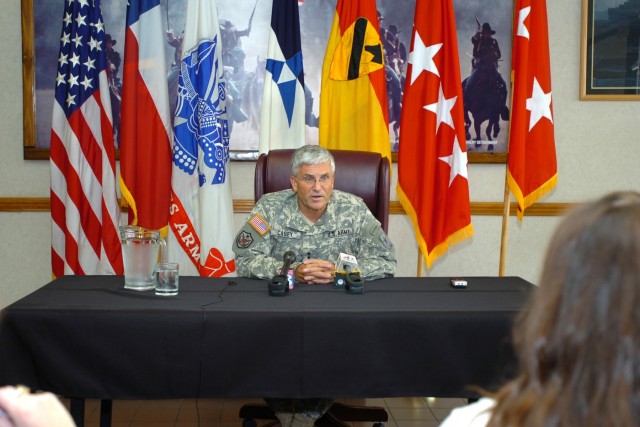
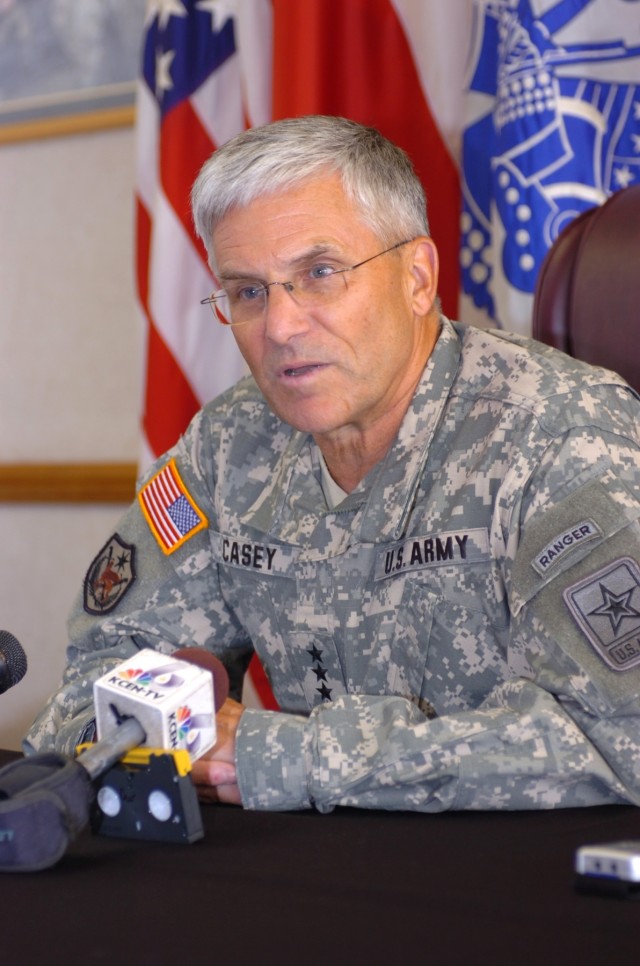
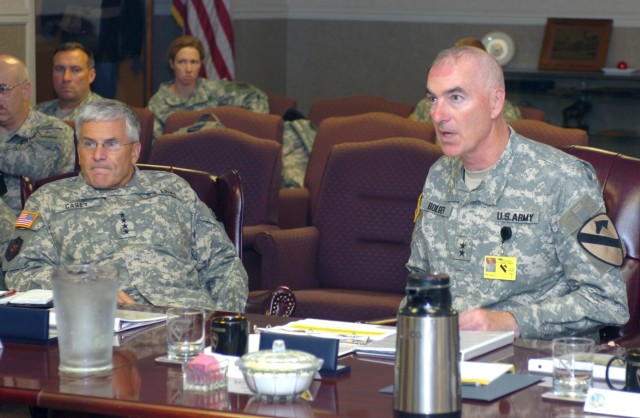
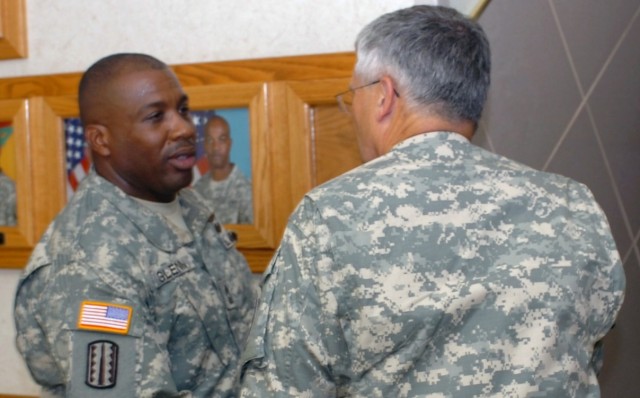
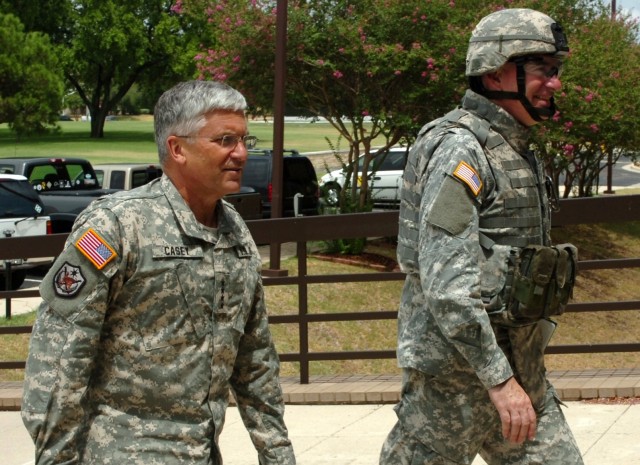
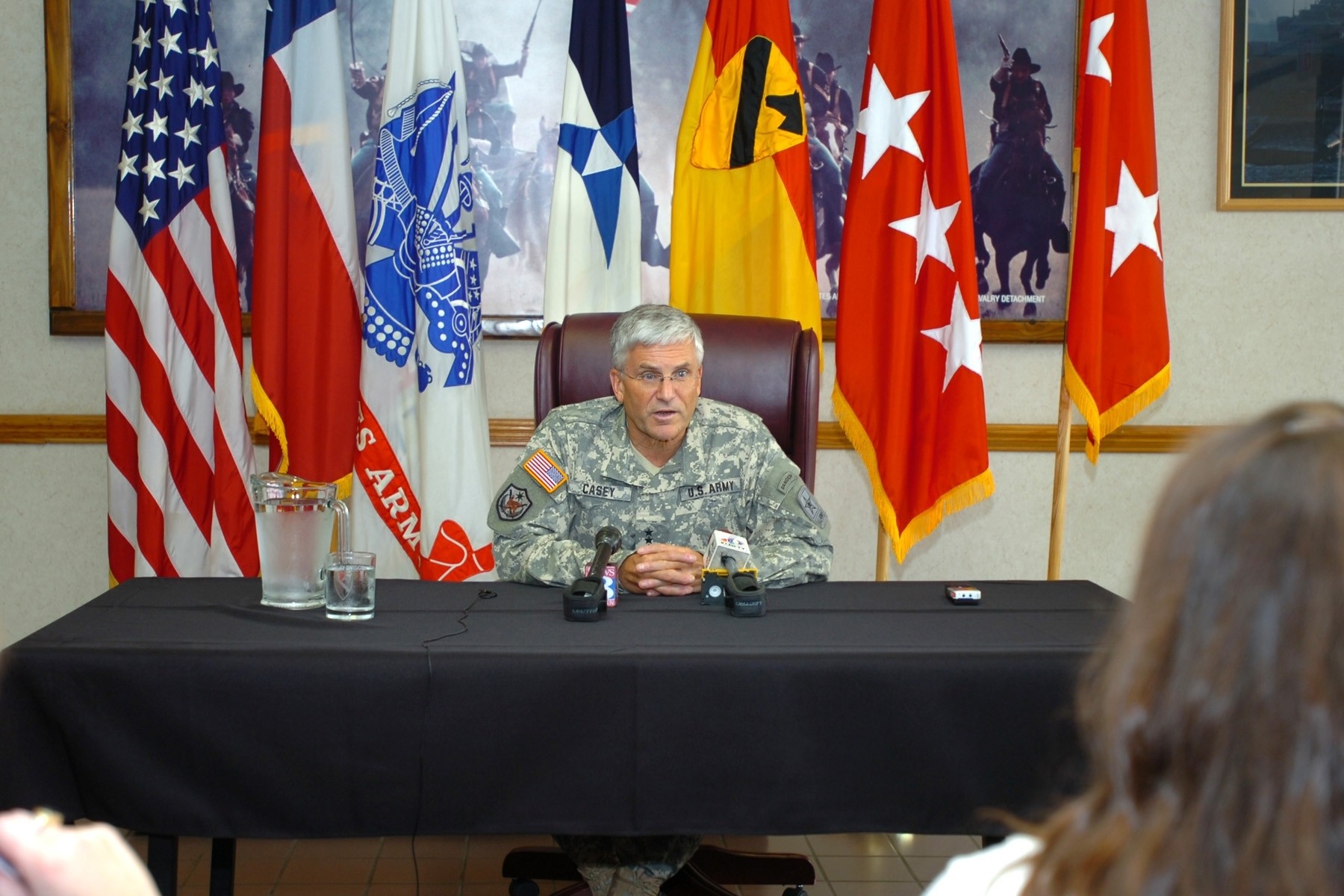
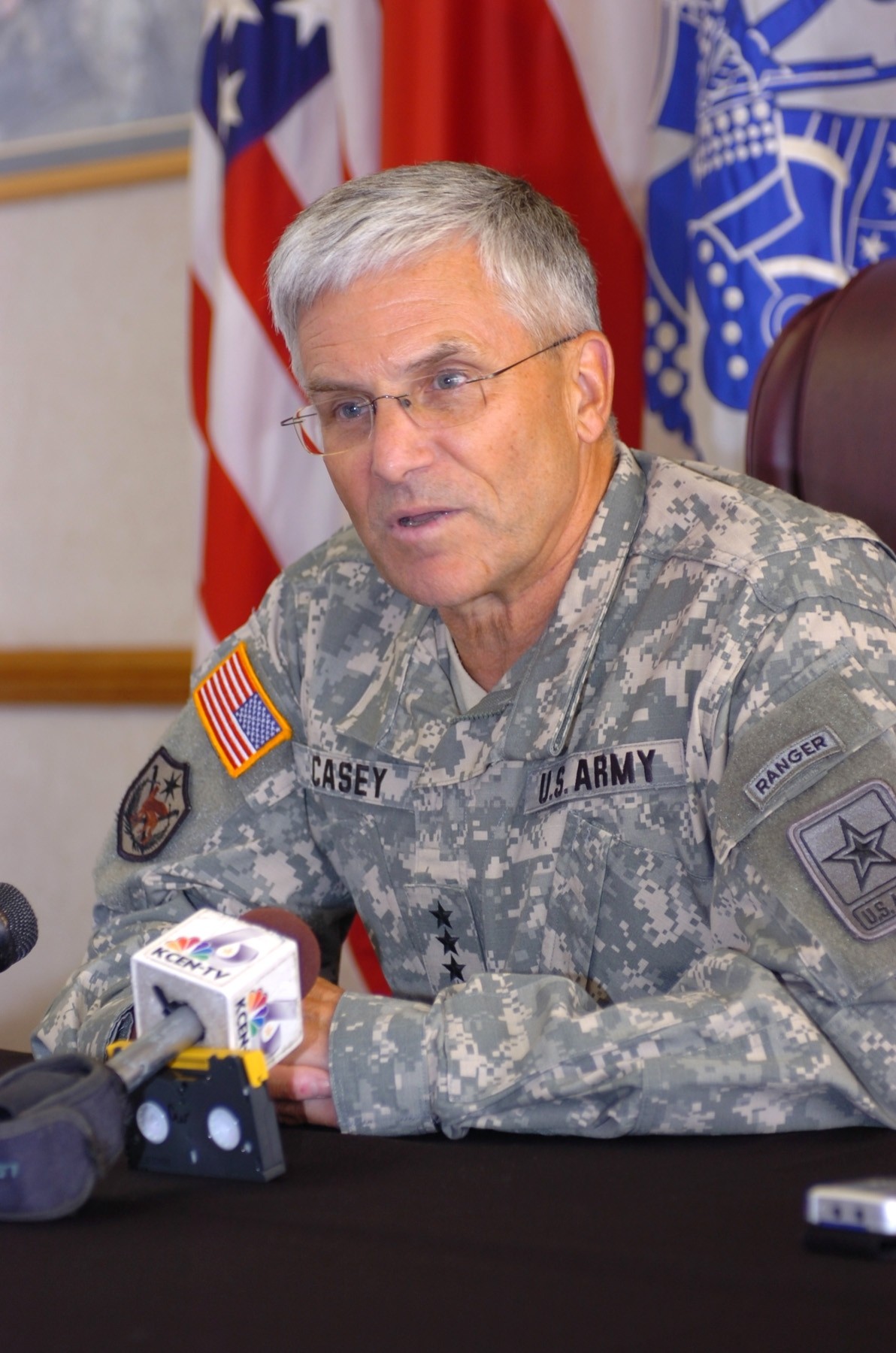
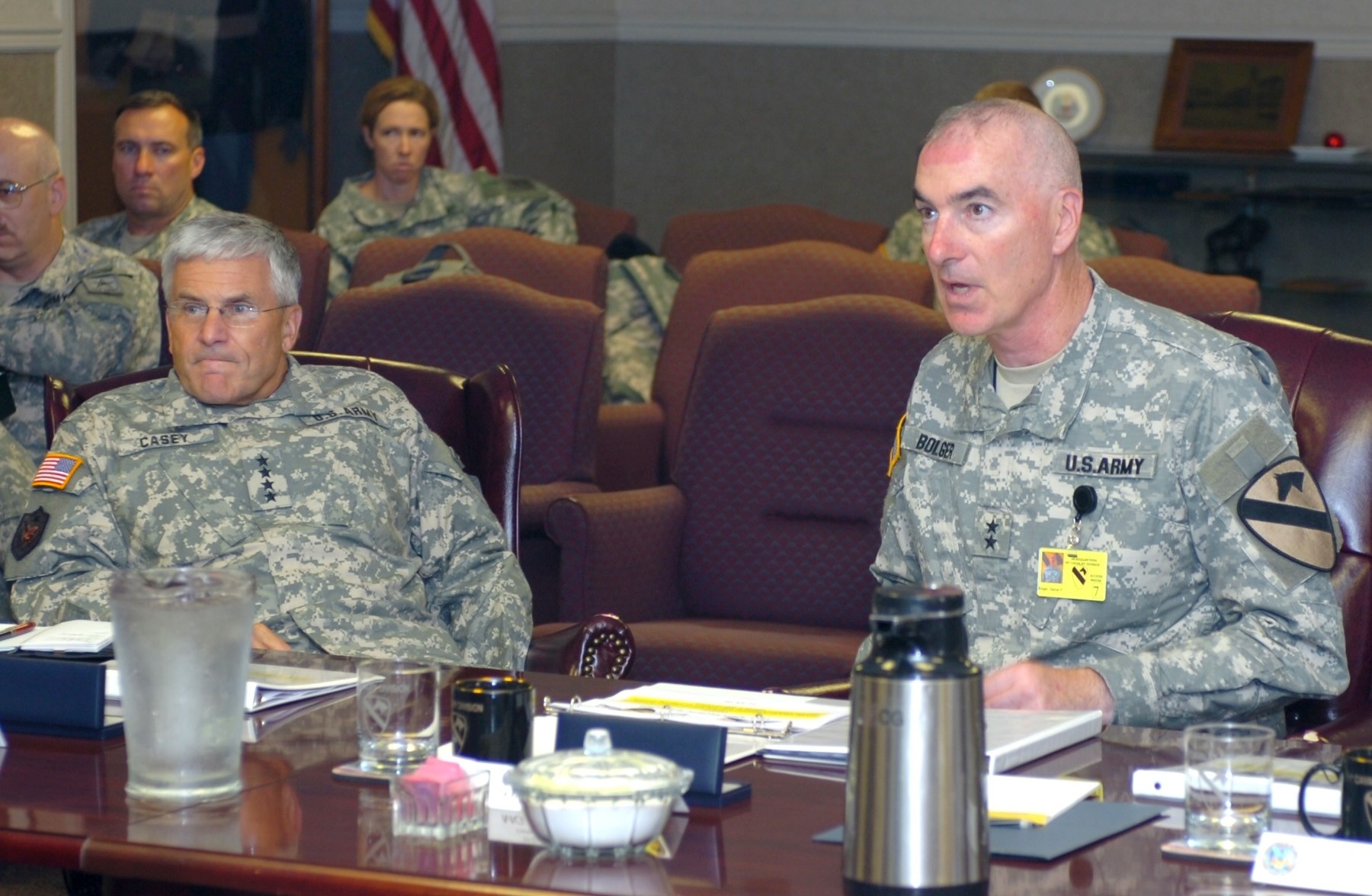
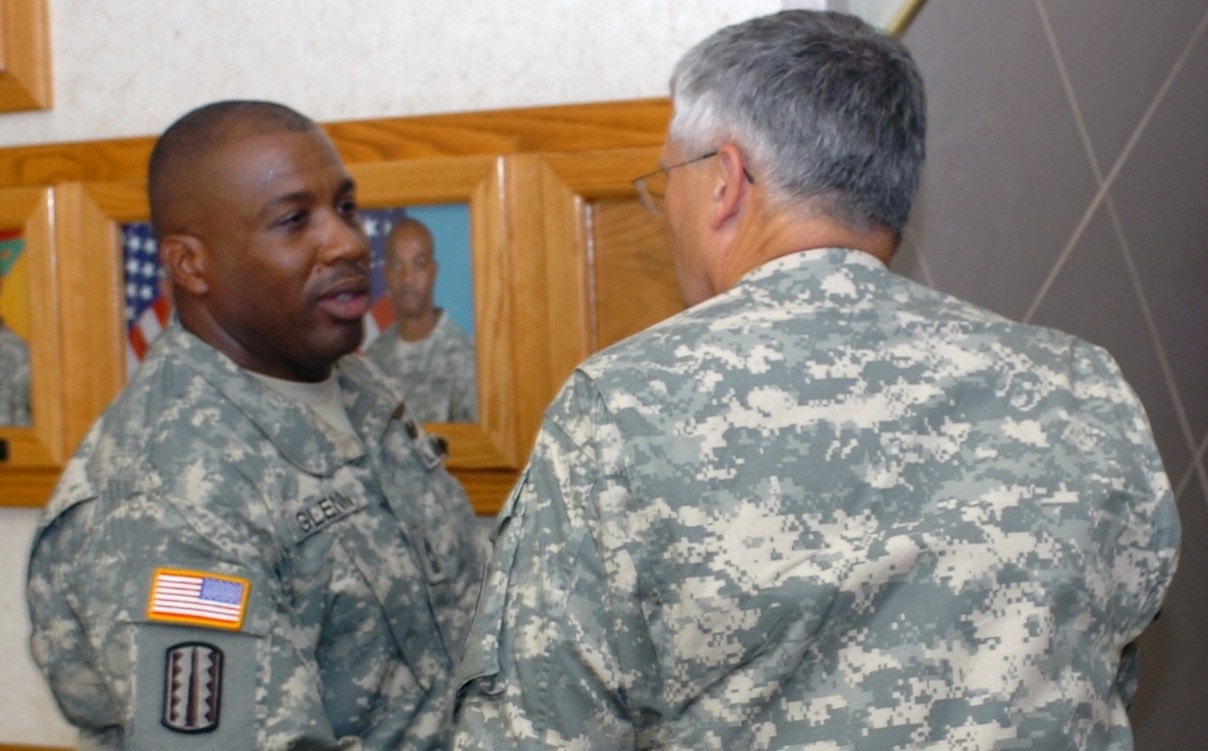
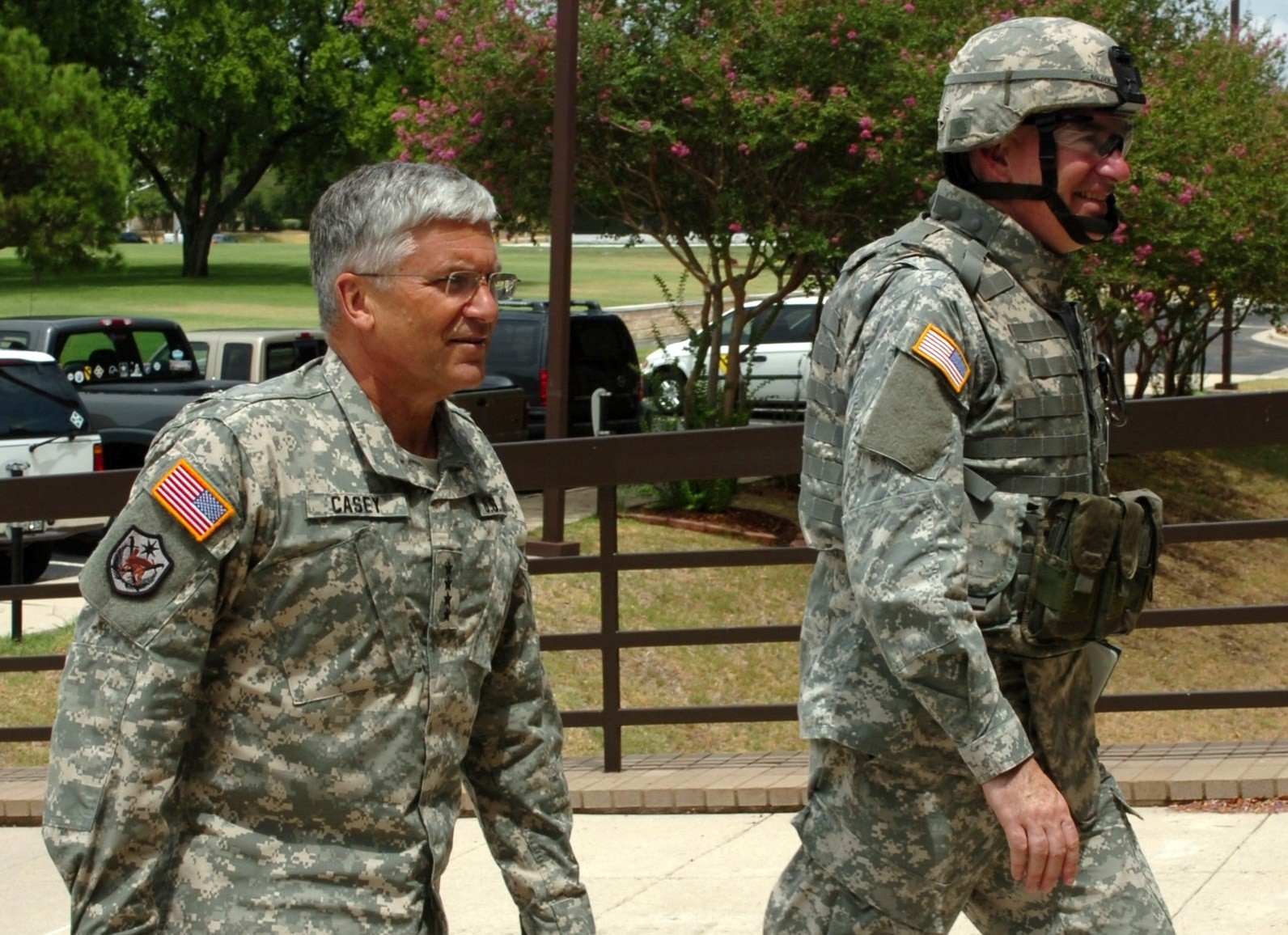
Social Sharing